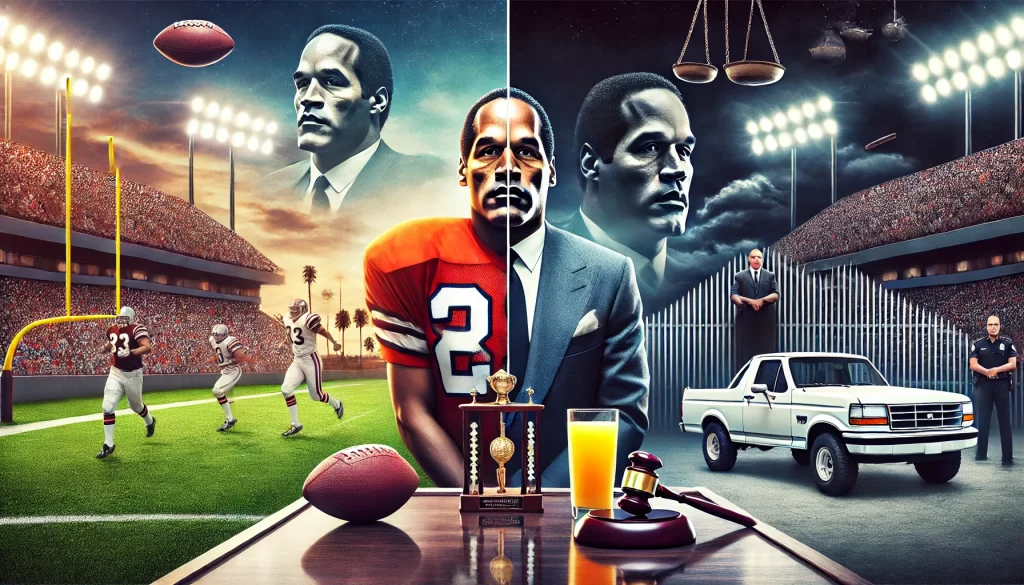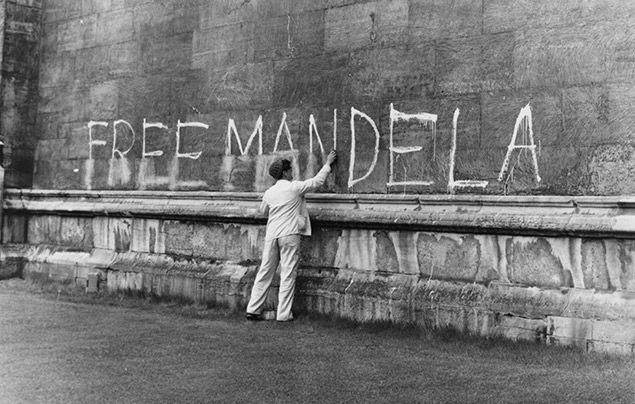O.J. Simpson’s life is a story of extreme highs and dramatic lows, moving from football glory to the infamous events that dominated the 1990s. Known for his remarkable athletic achievements, his television and movie stardom, and later for one of the most publicized trials in history, Simpson’s journey reflects the complex relationship between fame, media, and the American justice system.
Early Life and Football Stardom
Orenthal James “O.J.” Simpson was born on July 9, 1947, in San Francisco, California. He rose to fame as a football sensation, playing for the University of Southern California (USC). Known for his explosive speed and elusive running style, Simpson won the prestigious Heisman Trophy in 1968. This award set the stage for his successful professional career in the NFL, where he played primarily with the Buffalo Bills.
By 1973, Simpson became the first player in NFL history to rush for more than 2,000 yards in a single season, a record that cemented his legacy as one of the sport’s greatest players. He was later inducted into the Pro Football Hall of Fame, a testament to his impact on the game.
Hollywood and Commercial Success
After retiring from football, Simpson transitioned to Hollywood, where he quickly gained popularity. He starred in movies like The Naked Gun series, where his comedic timing and likable on-screen presence made him a household name beyond sports fans. Additionally, Simpson was a familiar face on television, working as a sports commentator and in numerous high-profile advertising campaigns, including the famous Hertz car rental commercials.
The Turning Point: The Murders of Nicole Brown and Ron Goldman
On June 12, 1994, Nicole Brown Simpson, O.J.’s ex-wife, and her friend Ron Goldman were found murdered outside her home in Brentwood, Los Angeles. Evidence and suspicion quickly pointed to O.J., leading to his arrest after a widely televised slow-speed chase in his white Ford Bronco. This moment, watched by millions, marked the beginning of a media frenzy that turned Simpson’s life upside down.
The Trial of the Century
The trial that followed is often called the “Trial of the Century” due to its impact on American culture and media. Simpson was represented by a “Dream Team” of high-profile lawyers, including Robert Shapiro, F. Lee Bailey, and Johnnie Cochran. The defense focused on discrediting the evidence, suggesting police misconduct and racial bias. Cochran’s famous line, “If it doesn’t fit, you must acquit,” referring to the ill-fitting glove found at the crime scene, became iconic.
After an eight-month trial, Simpson was acquitted on October 3, 1995. The verdict divided public opinion, with many questioning the justice system’s handling of race, fame, and privilege.
Civil Trial and Financial Downfall
Although acquitted in criminal court, Simpson was found liable for the deaths of Nicole and Ron in a 1997 civil trial, which ordered him to pay $33.5 million in damages. This financial burden, along with his legal expenses, drained much of his wealth, leading to a drastic change in his lifestyle.
The Las Vegas Robbery and Imprisonment
In 2007, O.J. Simpson was involved in a robbery incident in Las Vegas, attempting to reclaim sports memorabilia he claimed was stolen from him. This incident led to his arrest and subsequent conviction on charges of armed robbery and kidnapping. He was sentenced to 33 years in prison but was granted parole after serving nine years, being released in 2017.
Legacy and Reflection
Today, O.J. Simpson’s legacy remains complex. His football achievements are overshadowed by the controversies and legal troubles that followed. Simpson’s story highlights issues surrounding fame, justice, and media sensationalism. His fall from grace is often cited as a cautionary tale, demonstrating how fame and success can be both empowering and destructive.



